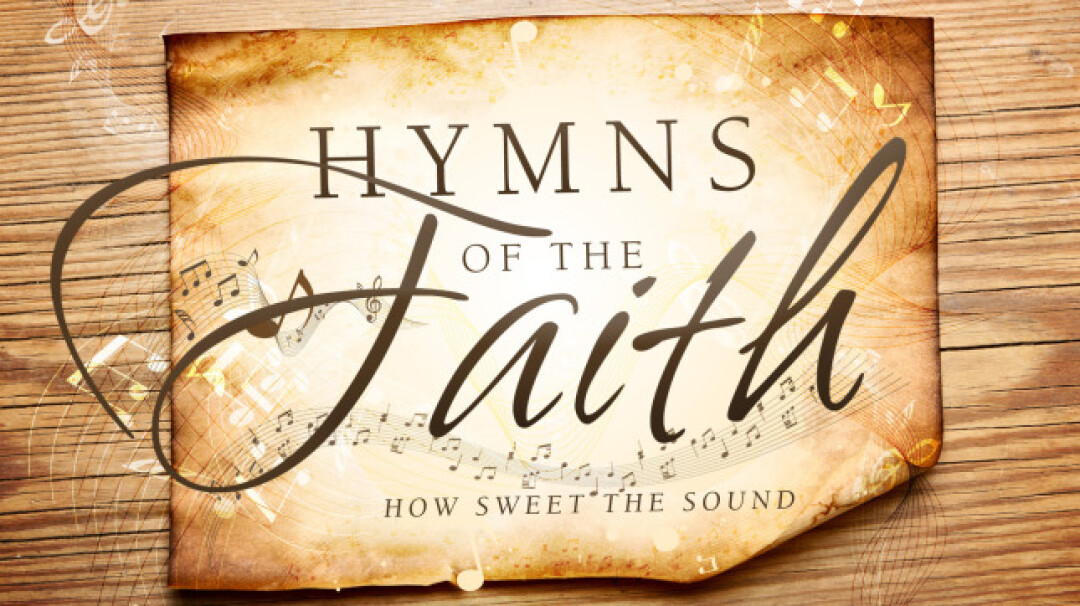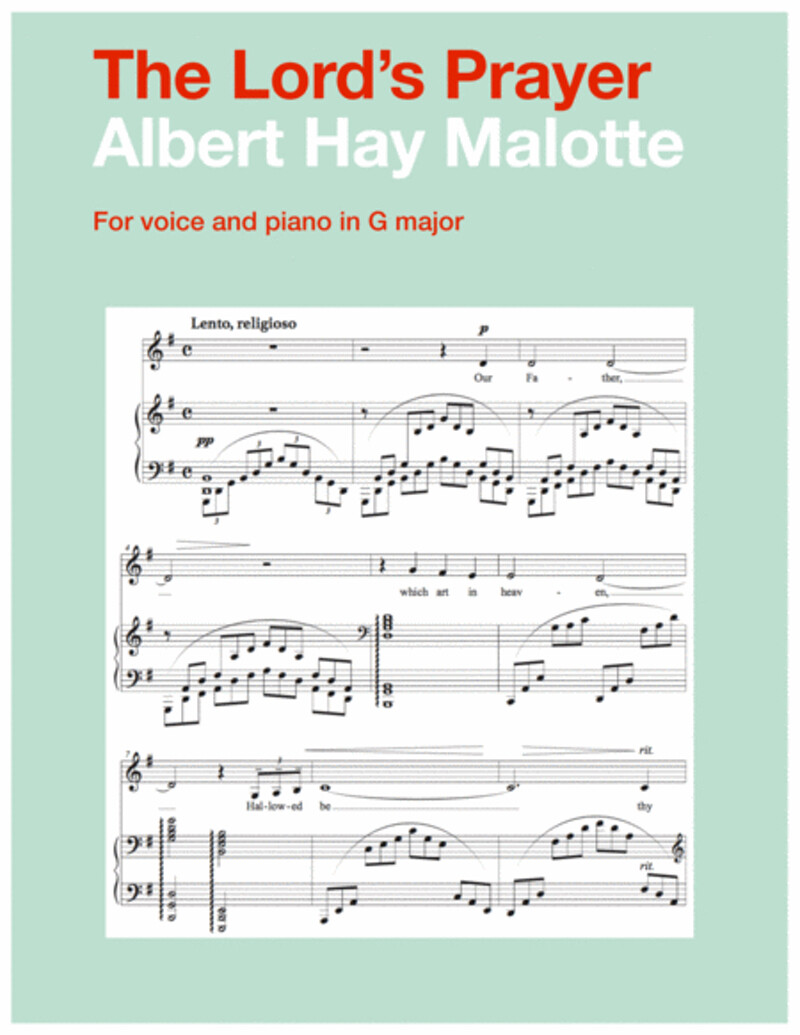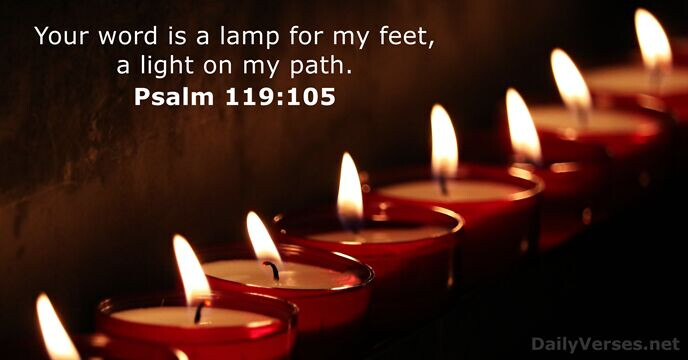

Scripture: Matthew 6:9-13 (KJV)
"Our Father which art in heaven, Hallowed be thy name. Thy kingdom come, Thy will be done in earth, as it is in heaven. Give us this day our daily bread. And forgive us our debts, as we forgive our debtors. And lead us not into temptation, but deliver us from evil: For thine is the kingdom, and the power, and the glory, for ever. Amen."
During the offertory on Sunday, July 13, 2025, Andrea Quiñones offered a beautiful and heartfelt rendition of "The Lord's Prayer" by Albert Hay Malotte. The powerful text, based on Matthew 6:9–13, was brought to life with Andrea’s moving vocals and the expert accompaniment of Pender pianist Heidi Jacobs.
This timeless piece reminds us of the depth and beauty of the prayer Jesus taught His disciples—a moment of worship that continues to inspire and uplift.
Andrea Quiñones sang the Lord's Prayer at Pender's Traditional Service on July 21, 2024. She was accompanied by Heidi Jacobs, Pender Pianist.
“The Lord’s Prayer”
Music by Albert Hay Malotte
Text based on Matthew 6:9–1
Our Father, which art in heaven,
hallowed be thy name.
Thy kingdom come,
thy will be done on earth as it is in heaven.
Give us this day our daily bread,
and forgive us our debts as we forgive our debtors.
And lead us not into temptation,
but deliver us from evil,
for thine is the kingdom, and the power,
and the glory forever. Amen. Amen.
The Enduring Legacy of Albert Hay Malotte’s “The Lord’s Prayer”
The first three notes of Albert Hay Malotte’s (1895–1964) setting of “The Lord’s Prayer” are among the most recognizable in church music. Despite numerous settings of this text from Matthew’s Gospel (vv. 9–13, KJV), Malotte’s version uniquely captures both the intimacy of the prayer’s petitions and the grandeur of its concluding praise before returning to a quiet “Amen.” Over the years, hymnals have included various settings of this prayer, from Gregorian chant to rhythmic compositions from the Caribbean and Latin America.
Originally published as a vocal solo in 1935, Malotte’s “The Lord’s Prayer” has been included in hymnals since 1976. It was first arranged for congregational singing by Fred Bock (1939–1998) for "Hymns for the Family of God." According to Hymnary.org, over two dozen hymnals feature this composition in various arrangements.
Malotte, a well-known concert and theater organist and Disney composer, dedicated this piece to his friend, American baritone John Charles Thomas (1891–1960). Thomas first recorded it in 1934 and introduced the solo on the radio.
His original recording is available here:
.
The origins of Malotte’s composition are surrounded by intriguing stories. One tale describes a runaway choirboy contemplating the words of the prayer to the rhythm of a train. Another suggests Malotte prayed for guidance in a church before composing it. When asked why he set “The Lord’s Prayer” to music, Malotte replied, “It came from within.”
Born and raised in Philadelphia, Malotte was a choirboy in his father’s choir at St. James Episcopal Church and studied piano and organ. He later moved to Hollywood, where he composed film scores for Disney, including music for “Ferdinand the Bull” and “The Ugly Duckling.” Malotte’s sacred music includes “The Voice of the Prophet,” vocal settings of Psalms, and the Beatitudes. He passed away in 1964.
Richard Huggins arranged the version of “The Lord’s Prayer” in Worship and Song. A retired Southern Baptist music arranger and producer, Huggins was an accompanist at several Billy Graham crusades.
Since its introduction, Malotte’s “The Lord’s Prayer” has become the most popular vocal setting of this text. Many artists, including Marilyn Horne and Denyce Graves, have recorded it. Malotte’s setting was also a staple in the Billy Graham crusades and the Fellowship Missionary Baptist Church’s broadcasts.
Malotte’s composition has been adapted into various arrangements, including solo, choral, and instrumental versions. G. Schirmer continues to publish and sell thousands of copies annually. Worship and Song includes a “medium-low” voicing in B-flat Major, with slight modifications to the accompaniment and rhythm, maintaining the sense of drama and grandeur of the original score.
Malotte’s “The Lord’s Prayer” remains a beloved piece in church music, cherished for its emotional depth and musical beauty.
The Lord's Prayer is one of the most well-known and recited prayers in Christianity. It is a prayer that Jesus Himself taught His disciples, offering a model of how to approach God in prayer. Each line of this prayer is rich in meaning and invites us into a deeper relationship with God.
Our Father in Heaven
When we begin by addressing God as "Our Father," we are acknowledging a relationship that is both personal and communal. God is not distant; He is close to us, like a loving parent. He cares for us individually and collectively as His children. By saying "Our Father," we are reminded that we are part of a larger family of believers.
Hallowed Be Thy Name
To hallow God's name means to honor it as holy. This phrase invites us to reflect on the reverence and respect due to God. It’s a call to worship, recognizing the sacredness of God’s presence in our lives. In a world that often trivializes or misuses God’s name, we are reminded to keep it holy in our hearts and actions.
Thy Kingdom Come, Thy Will Be Done
These words express our desire to see God’s kingdom established here on earth. It is a prayer of surrender, asking that God’s will take precedence over our own desires and ambitions. We are asking for God’s justice, peace, and love to be evident in our world and in our lives, trusting that His plans are far greater than anything we could imagine.
Give Us This Day Our Daily Bread
This simple request acknowledges our dependence on God for our daily needs. Whether it’s physical sustenance, spiritual nourishment, or emotional support, we recognize that all we have comes from God. By asking for “daily bread,” we are also reminded to live in the present, trusting God to provide what we need each day.
And Forgive Us Our Debts, As We Forgive Our Debtors
Forgiveness is at the heart of the Christian faith. In this line, we seek God’s mercy for our sins and commit to extending that same mercy to others. It’s a reminder that forgiveness is both received and given, and that harboring unforgiveness can hinder our relationship with God.
And Lead Us Not Into Temptation, But Deliver Us From Evil
We live in a world full of temptations and trials. This petition is a plea for God’s guidance and protection. We acknowledge our own vulnerability and ask God to lead us away from paths that would cause us to stumble. It’s a prayer for spiritual strength and deliverance from the forces of evil that seek to harm us.
For Thine Is the Kingdom, and the Power, and the Glory, Forever
The prayer concludes with a doxology, a declaration of God’s eternal sovereignty, power, and glory. It’s a statement of faith, affirming that all things belong to God and that He reigns supreme. This ending reminds us that our prayers are not just about our needs but about glorifying God in all things.
Reflection
The Lord's Prayer is a powerful reminder of the way we should approach God—with reverence, humility, dependence, and trust. It is a prayer that covers all aspects of our lives, from our physical needs to our spiritual well-being. As you pray these words, take time to meditate on each phrase, allowing it to deepen your relationship with God and transform your daily life.
Prayer
Heavenly Father, thank You for teaching us how to pray. Help us to approach You with hearts full of reverence and trust. May Your will be done in our lives, and may we always rely on You for our daily needs. Grant us the grace to forgive others as You have forgiven us, and protect us from the snares of temptation and evil. We acknowledge that all power and glory belong to You, now and forever. Amen.


